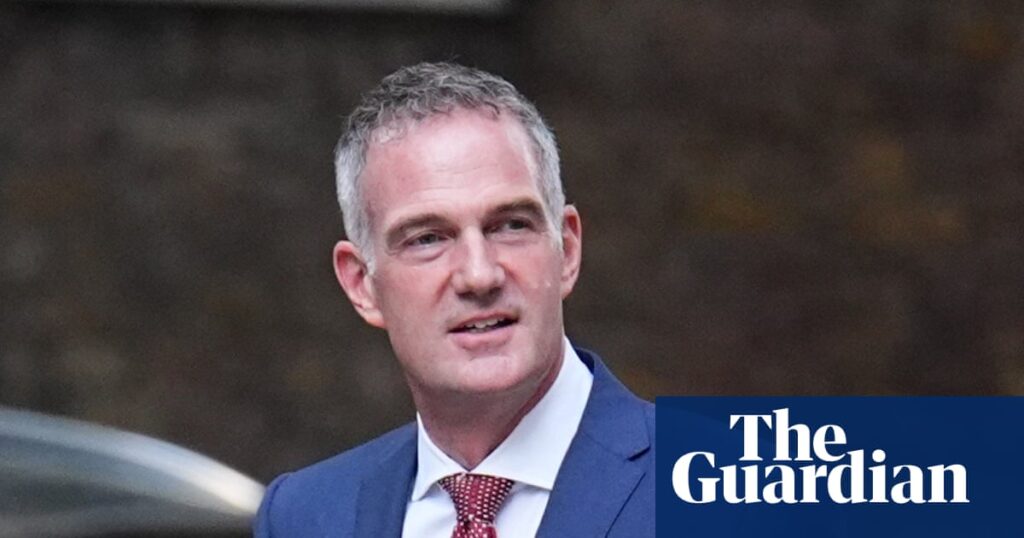Keir Starmer has sought to tighten his grip on his government with a wave of junior ministerial changes that has sidelined allies of the unions, raising questions over the future of Labour’s workers’ rights package.
The reshuffle has been used by Downing Street to signal a tougher stance on immigration in an apparent bid to take on Reform UK, with Shabana Mahmood – a self-described social conservative rising star – now in charge of the Home Office, supported by Sarah Jones who returns to her former policing brief.
Justin Madders, the employment rights minister, was one of the first on the junior benches to be sacked on Saturday. Despite being seen as one of the architects of Labour’s “new deal for working people”, Madders’ departure was not formally announced in No 10’s list of appointments. Instead, he revealed the news himself.
“It has been a real privilege to serve as minister for employment rights and begin delivering on our plan to make work pay,” he said on X. “Sadly it is now time to pass the baton on – I wish my successor well & will do what I can to help them make sure the ERB is implemented as intended.”
Madders’ removal, along with Rayner’s forced departure from her two government positions and post as Labour’s deputy leader, removes the key figures who helped design Labour’s employment rights bill – a policy unions praised as the government’s most ambitious commitment to workers’ rights in decades.
Starmer will also not attend this year’s TUC conference, a decision that has intensified concerns and rumours among unions and some inside Labour that the government is distancing itself. Rayner was the cabinet minister closest to the unions, and Madders had been given the job of turning the new deal into legislation.
Peter Kyle, a close ally of Starmer, was promoted to lead the business department on Friday, meaning he will oversee the employment rights brief.
Allies of Rayner who remain in government believe a fight is looming over workers’ rights. With Rayner and Madders gone, they believe Kyle has the ability to water down the bill – a package they feel many from the centre of the party were never comfortable with. The issue is likely to become factional, given polls show stronger employment protections remain popular with voters flirting with Reform UK.
The package had promised sweeping reforms including day one rights for workers, a ban on zero-hours contracts and stronger protects against fire-and-rehire. A union chief told the Guardian: “Rayner was the closest minister to the unions and her team have played an important role in pushing key parts of the employment rights bill through government.
“The commitment to the bill is there from Keir so I’m less worried about that, but more worried about the broader sense of who actually understands the unions, and has the personal relationships.”
Ellie Reeves has been shifted from her role as party chair to solicitor general and will no longer attend cabinet. She has been replaced by Anna Turley. Georgia Gould, from Labour’s 2024 intake, has been promoted to education minister.
For Starmer, the cabinet reshuffle was about showing decisive leadership in the midst of a major crisis, to which as his chief secretary, Darren Jones, alluded. But this junior reshuffle for many shows a broader ideological return that sees the government more cemented under centrist control, and potential fights with the unions along the way.
after newsletter promotion
Meanwhile, the shake-up at the Home Office will be taken as a sign of strength by many within government. Mahmood, the new secretary of state, will lead a refreshed team that now includes Sarah Jones, a former shadow minister who has long wanted to return to the brief. Jones has been described by some as serious about public safety and police reform, and is well regarded in industry after her work on steel and the industrial strategy within the business department.
Dame Diana Johnson has been replaced by Jones and will now serve as a minister in the Department for Work and Pensions, while Dan Jarvis will remain a minister in the Home Office and has also been made a Cabinet Office minister.
Jason Stockwood, the former chair of Grimsby Town football club, will take a seat in the House of Lords to become investment minister as part of Starmer’s ministerial shake-up. He was Labour’s candidate for Greater Lincolnshire mayor but was beaten by Reform’s Andrea Jenkyns.
The local government minister Jim McMahon has been sacked and will return to the backbenches, along with Maria Eagle, the defence minister. Catherine McKinnell resigned as minister of state for school standards, which included overseeing Send reform. She said she declined the opportunity to stay in government.
Darren Jones dismissed the idea that Rayner’s departure could expose divisions within the Labour party, after Nigel Farage said “splits” will open.
“Nigel Farage is wrong there,” Jones told Sky News. “The Labour party is not going to split and there won’t be an early election.”

